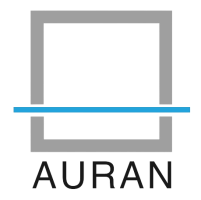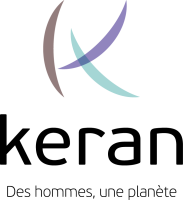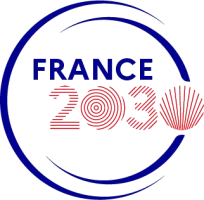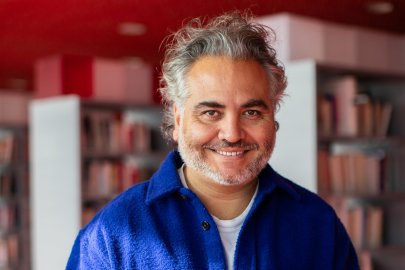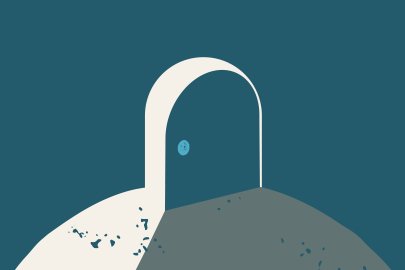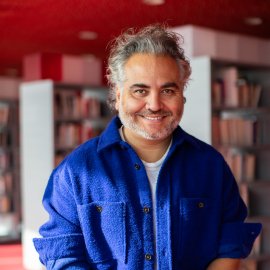The Agence d'urbanisme de la région nantaise, the École nationale d'architecture de Nantes, SCE-KERAN and the Institut d'études avancées de Nantes have joined forces to rethink territorial, urban and architectural approaches. Together, as part of the Living within planetary boundaries Chair, they are offering a nine-month international research residency at the Institut d'Études Avancées de Nantes for 2026-2027, aimed at a doctoral-level researcher in the humanities and social sciences, physical sciences, environmental sciences, life sciences or engineering, with the capacity to work in another disciplinary field.
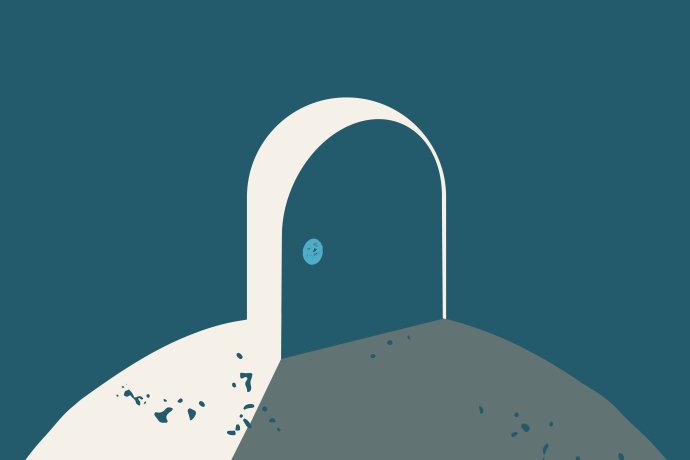
Subject
If the notion of “inhabiting” refers to the relationship between human and the places in which he evolves, that of “habitability” designates the conditions that enable him to inhabit a place, whether on the scale of private space (the home, the dwelling) or that of the city, landscape or territory.
This notion of habitability is developing as certain planetary boundaries are reached, and is increasingly raising questions for those involved in urban and architectural design: how can habitability be guaranteed in a world undergoing ecological and social transition? How can we shape our living environment in the light of planetary boundaries?
By bringing together an institute for advanced studies, a higher education establishment, an urban planning agency and an engineering and planning consultancy firm, the chair aims to promote and develop transdisciplinary and forward-looking scientific thinking, with the aim of questioning and exploring the forms and modes of living through the prism of planetary limits: carbon neutrality, adapting to climate change, restoring life...
Within the framework of the Chair, the subject will be addressed through four structuring issues:
- The evolution of lifestyles, practices and aspirations within society, which calls into question the development model based on metropolization and concentric spatial dynamics on the scale of a large territory.
- The question of “habitat” as such, of the relationship between living spaces and property, in the face of the scarcity of available land, family reorganization, professional mobility... Remaining for the moment in the realm of “experimentation”, new ways of meeting the need for housing are likely to sketch out new forms of solidarity and innovation.
- The exploration of the potential of existing buildings and the renewal of the city “on itself”, the fruit of the perpetual evolution of large conurbations, but whose priority asserted in contemporary urban strategies and its generalization is profoundly transforming the ways in which city players operate.
- The role of “living things” in combating the collapse of biodiversity through more sustainable development methods capable of delivering real ecological gains. This means strengthening integrated approaches to “reconcile” the city and nature by bringing together professional worlds that are still far apart, and, more broadly, poses a “cultural” challenge in terms of our relationship with nature and the living world.
Candidate profiles
This residency is aimed at researchers holding a doctorate in one of the humanities, social sciences, physical sciences, environmental sciences, life sciences or engineering, with the capacity to work in another discipline, and with at least 5 years' professional experience in urban planning, architecture or territorial issues.
Residents are also expected to have the teaching skills to convey their ideas to a varied audience (students, professionals, elected representatives, etc.), and proven experience in collaborative projects involving researchers and socio-economic and institutional players.
Professional French language skills are required.
Activities
During his/her residency, the researcher will be able to carry out the research project presented in his/her application, within a framework of interaction with international and local researchers, students and socio-economic players.
The candidate must set out in a written document the scientific project he/she intends to develop in response to the call for applications, in line with the theme and objectives formulated by the Chair's partners.
During the 9-month residency period, he/she must propose an inaugural conference and three masterclasses bringing together the Chair's partners, the organization and modalities of which will be co-constructed with the partners.
The candidate should be able to put forward initial proposals for the organization and running of these events, including debates, world cafés and feedback sessions. These formats for exchange and interaction will be privileged moments for the researcher and the Chair's partners to meet and share ideas, based on the theme and objectives set out in the call for applications.
Regular group time and activities with each partner organization will be proposed:
- The researcher will present his/her work to the Institute's residents during his/her residency, and take part in the seminar and two weekly meals with the residents.
- He/she will also be able to participate in and contribute to working sessions in each organization (in particular to prepare master classes, drawing on case studies chosen with the partners).
The researcher is also expected to produce a free-format deliverable, which will be worked on in conjunction with the Chair's partners, and which will be progressively enriched through the masterclasses, with the aim of providing lessons and perspectives for the transformation of the methods and practices developed by the Chair's partners. This deliverable may be capitalized on by the Chair's partners, with a view to preparing for subsequent residency periods developed within the framework of the Chair, and may give rise to one or more scientific publications.
Location
The Institut d'études avancées de Nantes is housed in an exceptional building on the banks of the Loire, designed specifically for its needs.
Les partenaires
Les résidences passées et en cours
How to apply
All duly completed applications must be submitted no later than January 5, 2026 via the “Démarches simplifiées” platform.
Incomplete applications will not be considered.
Application file (PDF documents / maximum size 10 MB):
- Completed application form: personal details, project title, project description, methodology, and how the project aligns with the expectations of the partners.
- Scientific project description (10,000–15,000 characters), if deemed useful in addition to the completed form.
- Curriculum Vitae (CV).
- Three selected publications relevant to the applicant’s research and/or demonstrating the ability to work in an interdisciplinary framework and context. At least one of these should be aimed at a non-academic audience, in order to illustrate the capacity for outreach and dissemination.
Application process
- September 29, 2025: Opening of the call for applications
- January 5, 2026: Application deadline
- February 5, 2026: Online interviews with pre-selected candidates
- February 2026: Selection committee decision and announcement of results
- October 2026: Beginning of the residency
